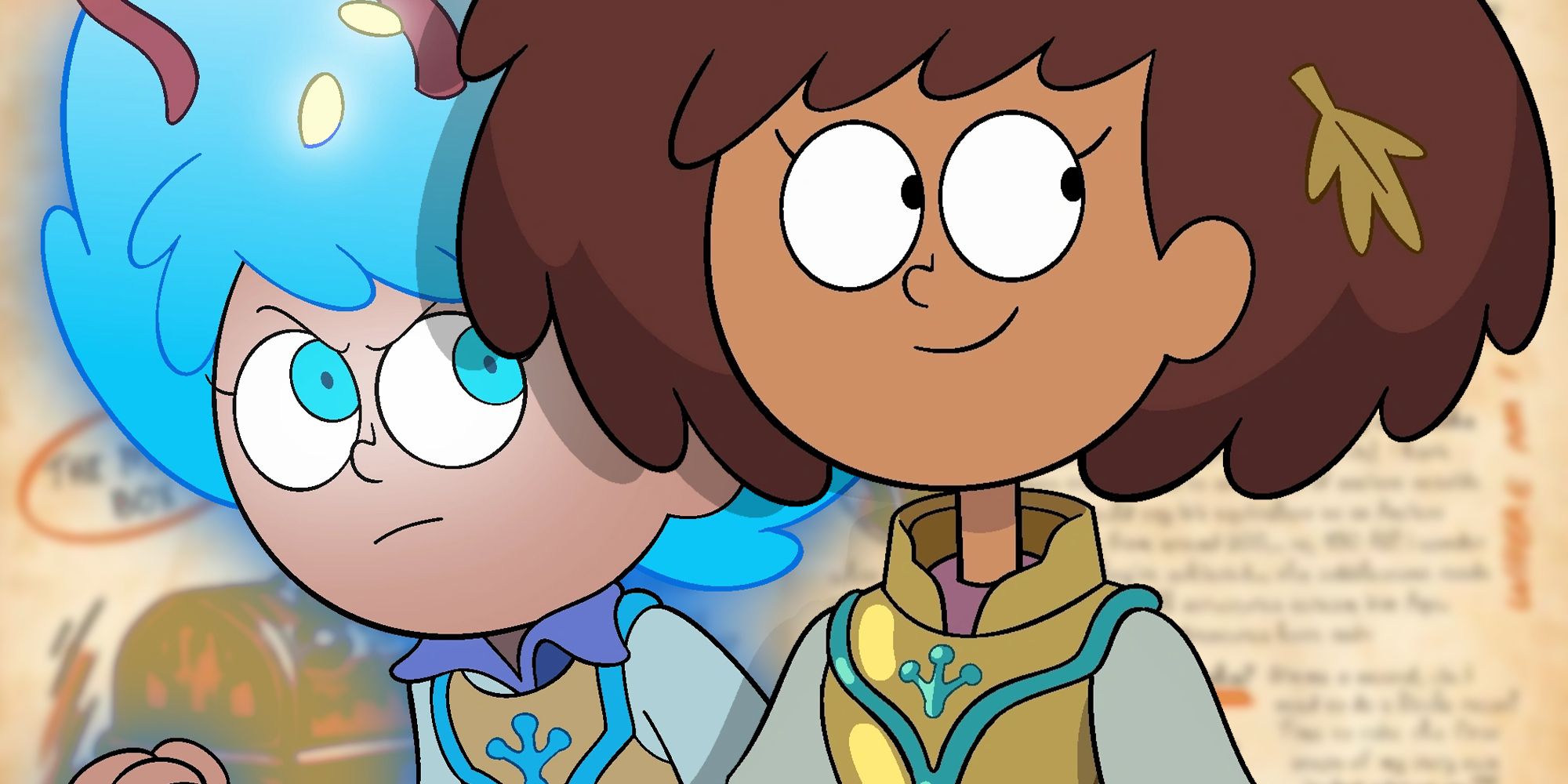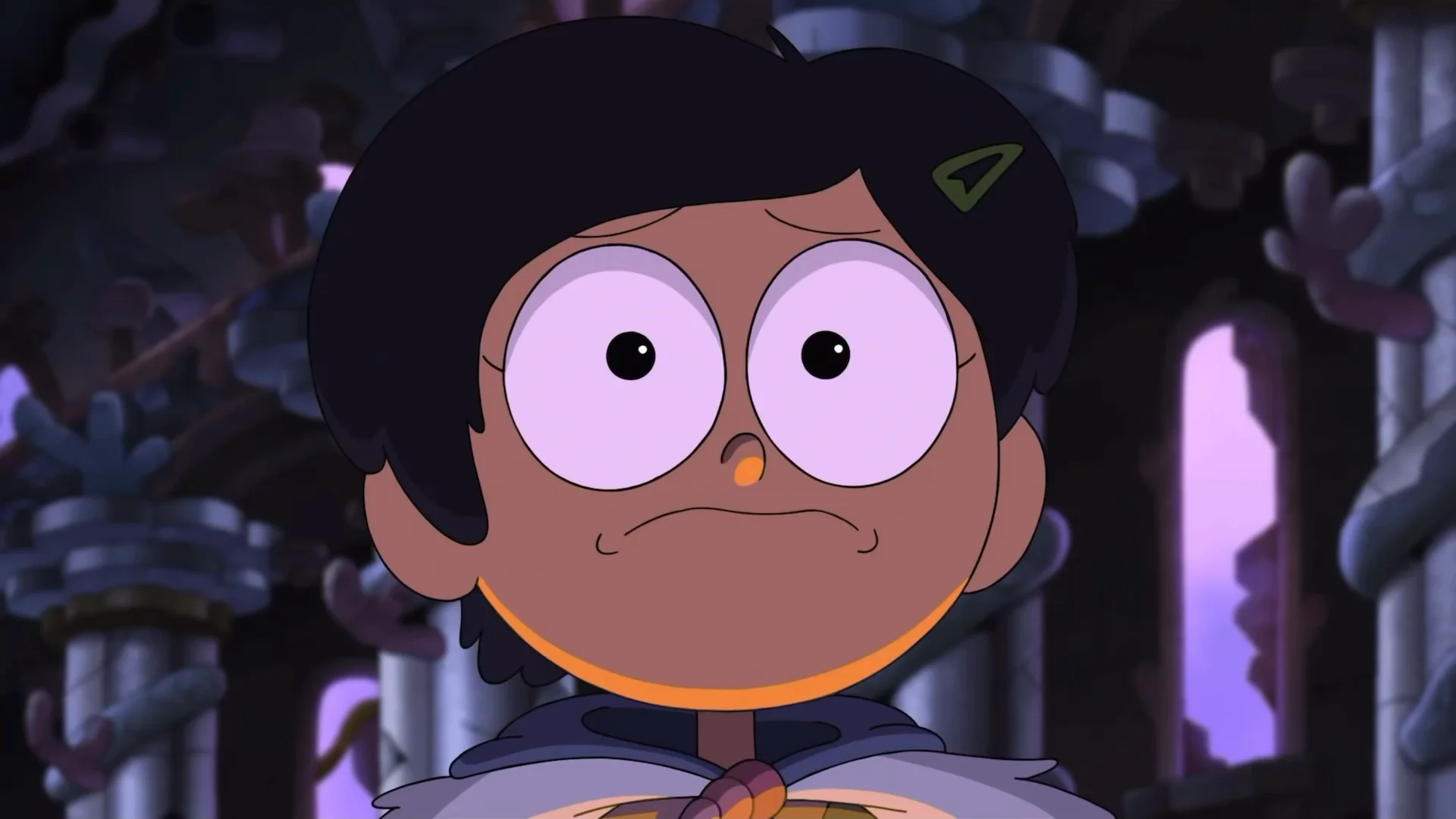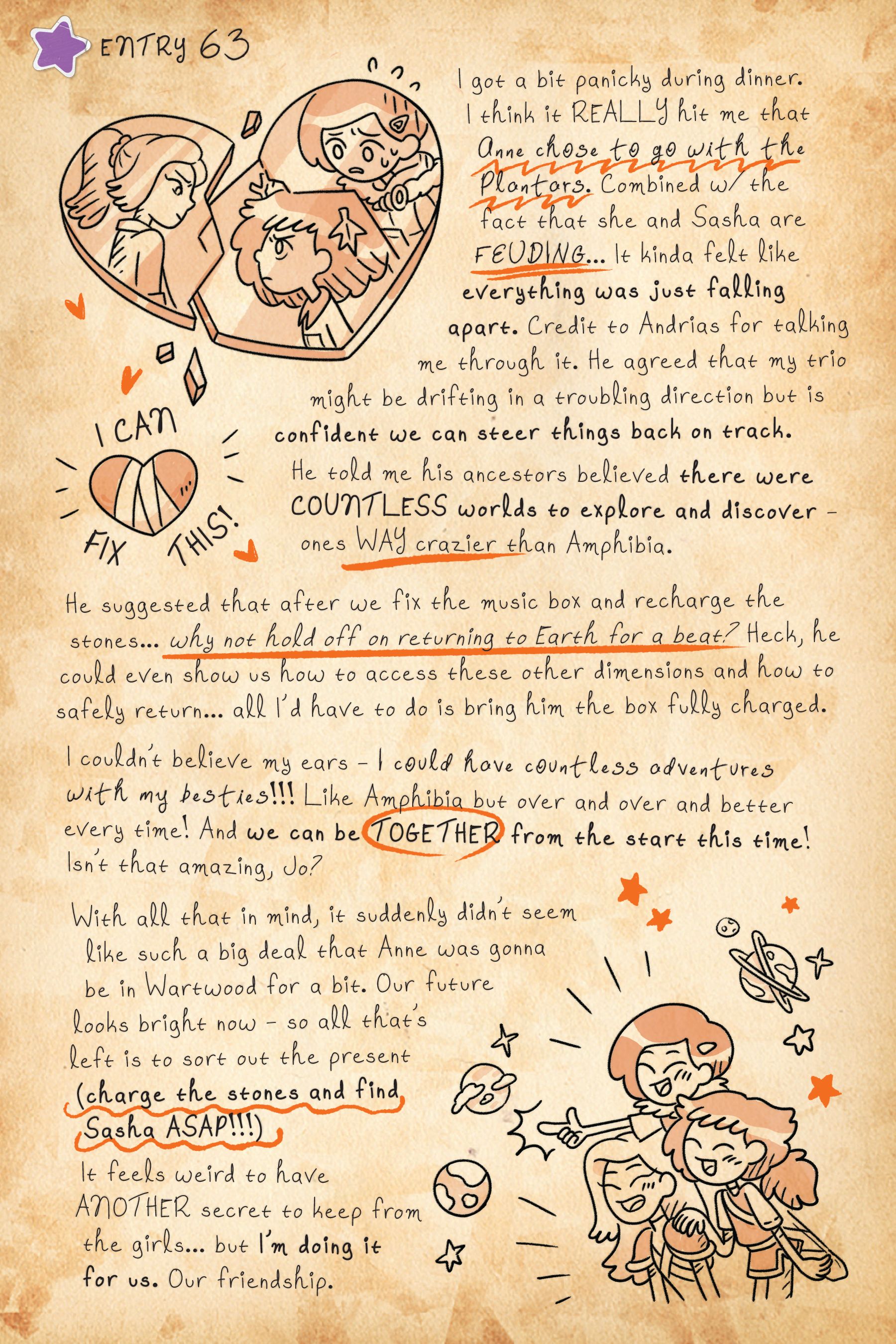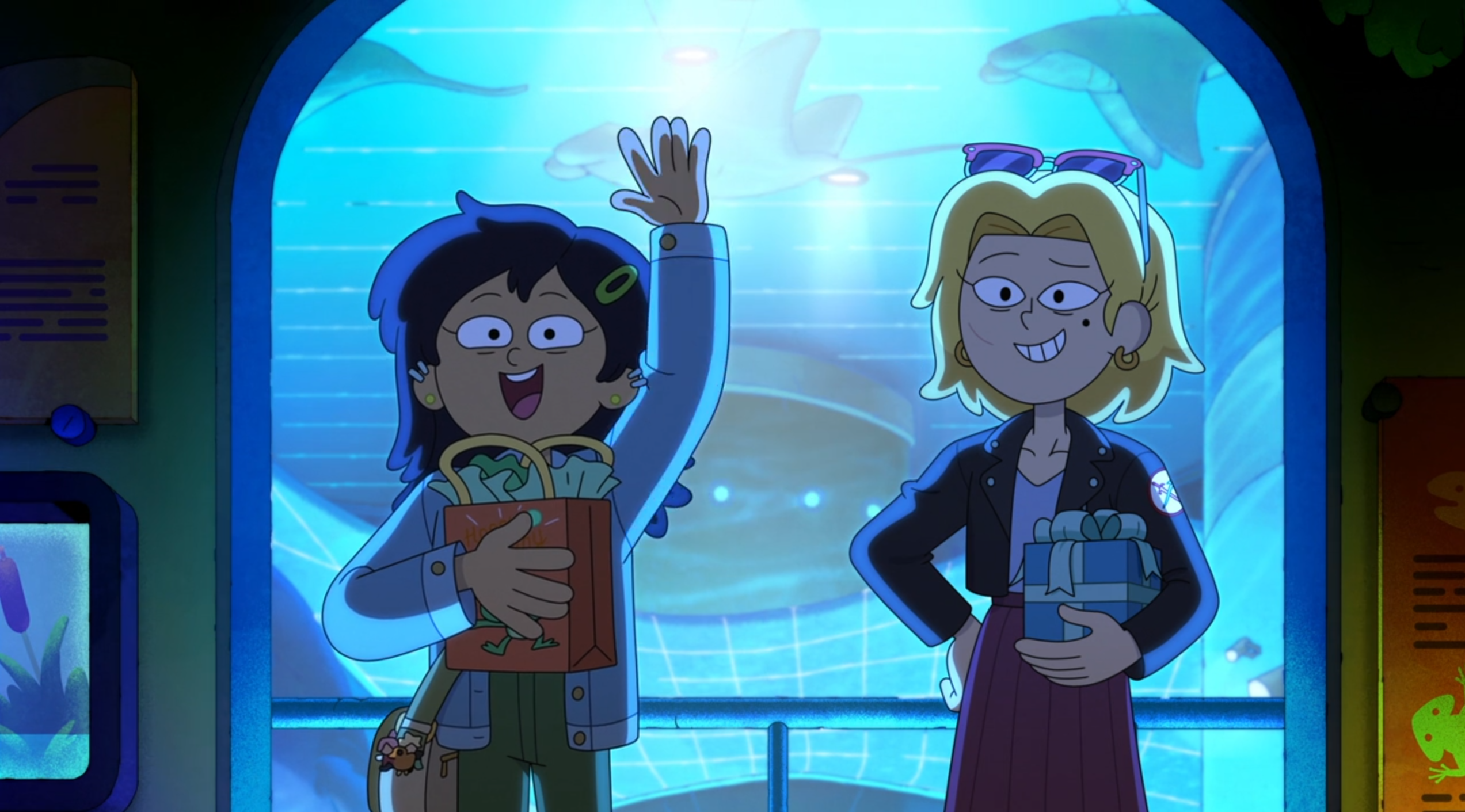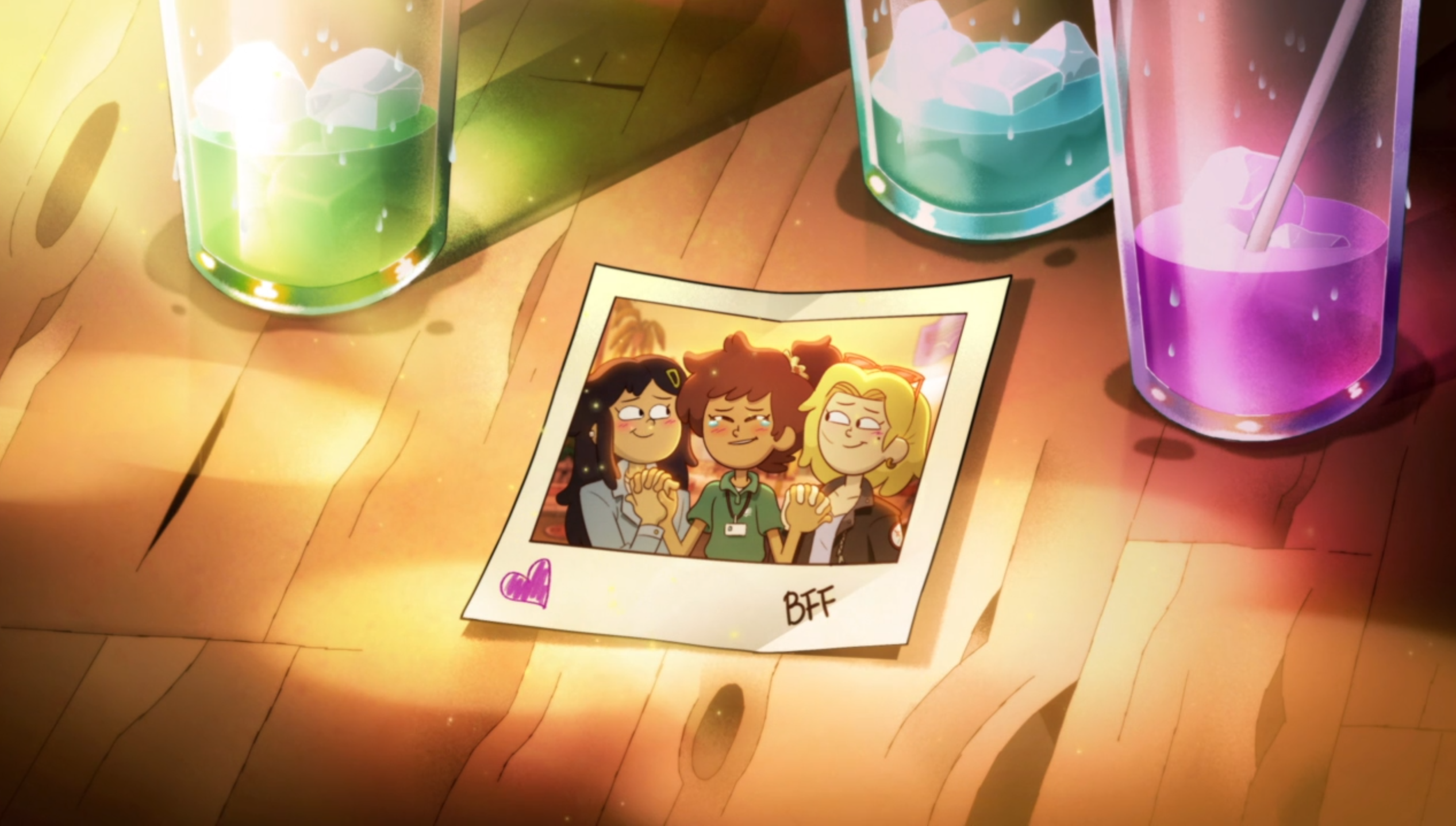Spoiler warning for Marcy’s Journal - A Guide to Amphibia
Marcy’s Journal - A Guide To Amphibia is a few days away, and fans can look forward to a comprehensive retelling of the show’s narrative from the perspective of a beloved character.
It’s so much more than that too, with roughly a third of the text told from the eyes of series’ protagonist Anne Boonchuy. Given that Marcy is murdered at the hands of King Andrias at the end of the second season, someone had to pick up her journal and chronicle the events to come. I can't remember if we even knew Anne had her journal in the show, but this newfound context adds so many layers to her character that the animation wasn’t always capable of providing.
Compared to The Owl House, Amphibia is less focused on serialised storytelling and more on standalone hijinks that link together the core narrative. As a consequence, taking time to get all angsty and delve into the inner psyche of our favourite characters wouldn’t exactly work without feeling incredibly jarring. Anne witnessed the death of her closest friend and was split off from another, thrust back home with no way of returning to a world she may have just doomed to oblivion. That's some heavy shit to process, but it’s never brought up.
Anne reunites with her parents, sheds a few tears, and then she’s down to clown again. A wider tale of building the portal device and being hunted by evil robots reminds us that a constant threat lingers over them, but many viewers left the third season wanting a more brutal examination of Anne’s feelings, and now we finally have that. Marcy’s erratic black scrawl is replaced by a playful blue, Anne’s words gliding across the page with a more nuanced contemplation for the events she is recalling and those she might have hurt by making certain decisions.
She mourns the potential loss of Marcy, and is only willing to talk about the hole it left inside her when ready. But she also denies her demise, vowing to get her back and reunite the trio no matter what, though she recognises how hard the journey ahead might be. Anne’s growth is immediately referenced, and the months spent away from her parents isn’t seen as a joyful adventure, but a damning indication of her selfishness and how she failed to consider their feelings at all.
There is a determination to make up for these shortcomings, all while stepping up to keep The Planters safe since, all of a sudden, this teenager has responsibility riding on her shoulders. After meeting with her parents they decide that keeping things secret from the families of Sasha and Marcy is best until the time is right, a festering guilt that won’t rear its head until letters sent at Christmas. None of these added details are essential, but manage to flesh out Anne’s arc in ways that make her a much stronger and more relatable character, instead of one that throws aside her destiny until it suddenly bites her in the ass.
Anne’s character arc throughout the third season is a girl who begins as selfish and insular, often failing to consider how much her family cares for her and the support system they’ve implemented to make her life the best it can possibly be. She grew complacent, and it takes a plunge into Amphibia to make her realise that sometimes you must work to better yourself, and that having empathy for others is an essential trait to not only keep your friends, but maintain respect for who you are as a human being. No longer is this a little girl willing to let people walk all over her or talk back to them in disrespectful ways, but instead a teenager with a grasp of responsibility and fighting for who and what she believes in.
Creator Matt Braly broke this message down in past conversations with me, and to see it finally materialise in canon through the journal is so satisfying, and brings this universe to a close in ways that I never could have envisioned. Anne suddenly mourns the loss of her friends and recognises how important it is to protect those she has left. No longer is she residing under the wings of someone more caring and supportive, that role is subverted so she can learn the right lessons and move forward. Even outside the realm of animation this comes across beautifully, and her section of the journal isn’t afraid to redefine who she is.
One of the more fascinating observations is Anne’s concrete lack of denial. Marcy spends so much of the journal fixating on her own personal exploits, happy to get away from what she left behind because this fleeting fantasy is so much better. Whenever Anne and Sasha are mentioned she is brought crashing back down, questioning her own mistakes and failing to recognise that none of this is permanent, and the need to accept the future and what she did wrong is essential to fix any of this. All of a sudden she changes the subject again, back to having fun and denying reality until it’s far too late. A flaming sword through her torso is the final fatal reminder before it all fades black. When she finally awakens, all the pieces have been moved for her, and all she needs to do is accept it all and move on.
Even the journal teases some omnipresent doubts as Marcy gets a therapist and hopes to maintain her bond with Anne and Sasha as they grow older, learning to gradually let go and understand that the future will bring them back together when the time is right, and drifting apart is a part of life all of us have to go through. It’s a touching message of perseverance from the three of them that readers will resonate with, told with an honesty the show was so close to breaching upon, but never quite managed to. Anne also says sus, and it’s the best.

